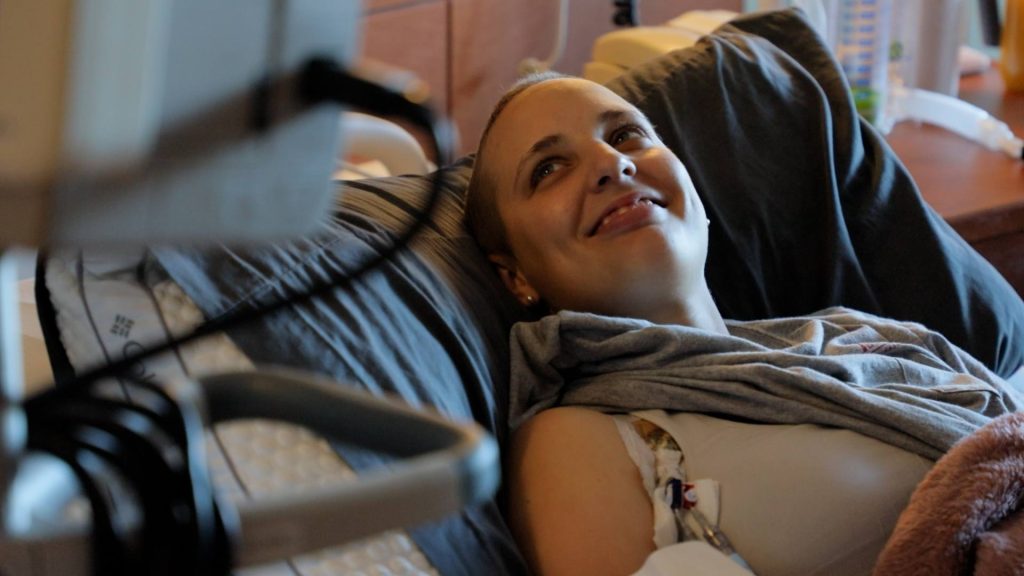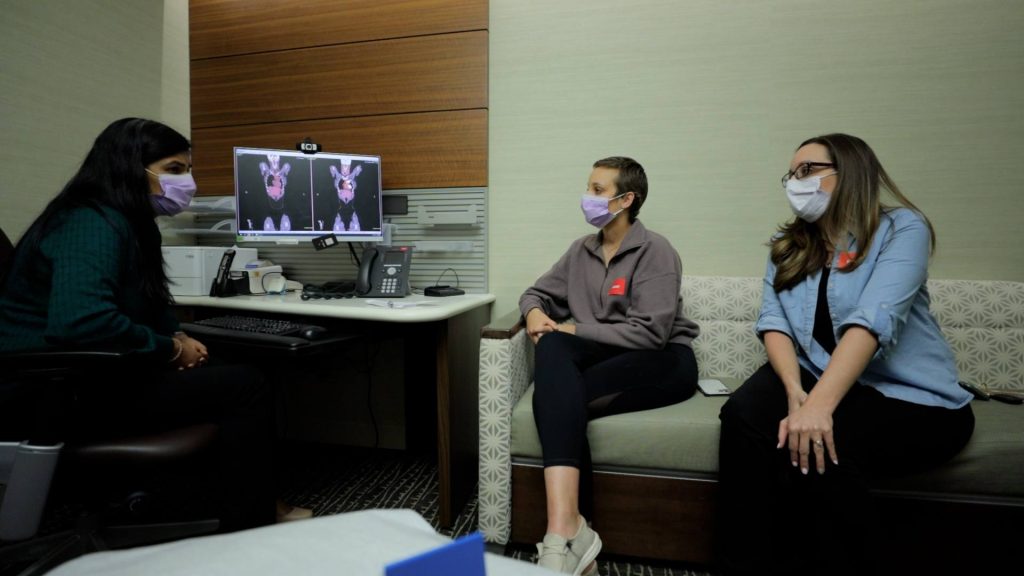-
Cancer
‘She has big things ahead of her.’ CAR-T cell therapy gives Florida teen hope

The crack of an aluminum bat is met with cheers from a crowd watching Brooke Michael hit a softball deep to left field. She's done this before, but this is the first time since fighting cancer.
"I started playing softball when I was 5," says Brooke. "Being a catcher, you have to be strong."
She knows more than the average teenager about being strong. In November 2020, then 17 years old and a high school senior, Brooke called her mom in pain after softball practice.
Watch: 'She has big things ahead of her.' CAR-T cell therapy gives Florida teen hope
Journalists: Broadcast-quality video pkg (2:55) is available in the downloads at the end of the post. Please courtesy: "Mayo Clinic News Network." Read the script.
"She had been sick about five weeks prior, but we thought she had a shoulder injury," says Stephanie Michael.
Brooke was also struggling to breathe, so Stephanie rushed her daughter to a pediatric hospital near the family's home in Jacksonville, Florida. Physicians found fluid around her heart and a tumor compressing her airway.
"They had told us she had anywhere between hours and days to live," says Stephanie.
Brooke's diagnosis: primary B-cell lymphoma, a cancer of the immune system that tends to affect young people.
"Cancer — when you get that diagnosis, especially with your child — it's hard. And it's hard to stay positive, but you have to," says Stephanie.
Patients who are newly diagnosed with lymphoma are traditionally offered a combination of chemotherapy and antibody-based treatments. After six cycles of chemotherapy and proton radiation therapy, treatment wasn't working.
"My cancer wasn't really responding," says Brooke.
Soon after, Brooke and her family turned to the Mayo Clinic Cancer Center. Physicians believed Brooke was a good candidate for chimeric antigen receptor-T cell therapy (CAR-T cell therapy). The personalized treatment collects a patient's T cells, which normally help fight off infections, and genetically engineers them to target lymphoma.
"CAR-T cell therapy represents a real game changer and essentially represents the future of lymphoma treatments," says Dr. Madiha Iqbal, a Mayo Clinic hematologist and oncologist and member of Brooke's care team.
"When I first heard about CAR-T cell therapy, I was a little bit nervous but pretty excited to hear they were pretty optimistic, and they had seen good outcomes," says Brooke.
In November 2021, almost a year to the day of her diagnosis, Brooke's modified cells were infused back into her body.

"We assess response to CAR-T cell therapy at 30 days after the cell infusion," says Dr. Iqbal. "Brooke had a remarkable response; her disease had almost completely gone."
Brooke's body maintained that response through her 100-day checkup: a benchmark physicians use measure success.
"Scientists and physicians are becoming more comfortable calling these patients as cured," says Dr. Iqbal.
For Brooke, that means being back on the softball diamond, catching on the same college team as her twin sister Brittany.
"It was really exciting, definitely getting back on the softball field and starting with Brittany because that's what we always dreamed," says Brooke.
She says time spent in the hospital also helped reaffirm her career dreams.
"I've always wanted to be a nurse since I was young, but going through this really made me feel like I wanted to help people," says Brooke, noting that she might want to be a flight nurse; or, a pediatric oncology nurse.
A dream Stephanie sees coming true.
"I hate that she's on this journey, but I feel like she has big things ahead of her in her life," she says. "Because of this, she'll be able to help people with this."
Though Brooke will have ongoing checkups, her focus is on the future.
"I don't really think about the past at all anymore because I'm really in a normal life now. I have a life to live," says Brooke.
RELATED: Mayo Clinic Minute: What is chimeric antigen receptor-T cell therapy?
RELATED: Mayo Clinic first to perform CAR T-cell therapy in NE Florida

For the safety of its patients, staff and visitors, Mayo Clinic has strict masking policies in place. Anyone shown without a mask was recorded prior to COVID-19 or recorded in an area not designated for patient care, where social distancing and other safety protocols were followed.







